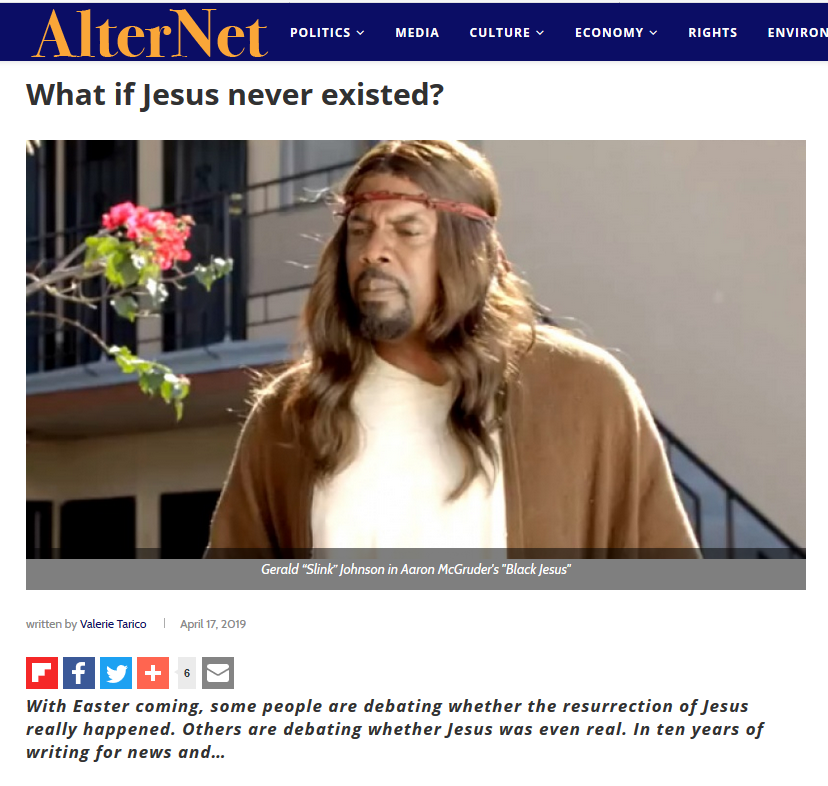We saw it first on Valerie Tarico’s website, and now, right on the eve of Easter, it pops up in full bloom on Alternet:

Or go to the original base:
What if Jesus Never Existed? An Interview with History Writer David Fitzgerald
If you enjoyed this post, please consider donating to Vridar. Thanks!


Hmmm I was going to send AlterNet a copy of my book when it came out, but then I thought, nah.. Oh well.
It’s not too late to.
While we’re at it, here is a recent article on RawStory : https://www.rawstory.com/2019/04/evidence-jesus-ever-existed-weaker-might-think/
I did notice that the article cites an article of mine on rationalrevolution, which I’m dubious about in terms of the level of scholarship if they are citing me that way, but anyway :p
Overall I think the piece is coherent and puts forward a relatively good profile of the case.
• A required quote for any Easter posting:
Neil Godfrey (28 October 2018). “Response #4: Non Sequitur’s Tim O’Neill presentation, …. Your turn“. Vridar.
• Or, if you are an “old school” fan:
Bauer, Bruno (1842). Kritik der evangelischen Geschichte der Synoptiker (in German). 3. O. Wigand. p. 308.
There is often talk of Christ Jesus being a composite figure, but that could mean he was (and is) a composite of various communities’/sects’ beliefs in different Jesuses* or Christs^ [or Chrestuses^].
ישוע / Yeshua, Ἰησοῦς / Iēsous
• Every region or congregation had likely chosen one or another Gospel as its authoritative holy text
Per Carrier (23 September 2016) [now bolded]. “Three Things to Know about New Testament Manuscripts”. Richard Carrier Blogs.
^ Χριστός / Christus: ‘annointed [one]’
Χρήστός / Chrēstós: ‘good’, ‘useful’
Apologies, MrHorse — your comment had been caught up in spam for some mysterious reason. It is here now…
How about “the slippery[one]”?